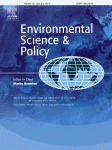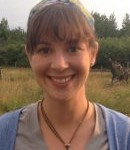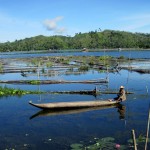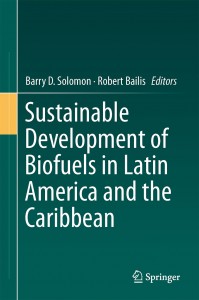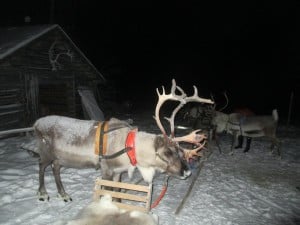
Associate Professor Mary Durfee tells us about her experience in Rovaniemi, Finland:
It was even better than I expected. We met at the business place and they gave us insulated boots and snow-mobile suits. Drove us about 20-25 minutes into the country side until there were pretty much no lights. We stood around the farm with the reindeer and then they had us walk to a different area. There were two young couples and me. The couples each got a sled with a reindeer and I got the last one. The reindeer are tied together in a little reindeer train. It was quite cold -20c/ -4 F maybe even colder. Stars were out and ever so bright. A diffuse white glow was towards the North, though at first I thought it might be lights from Rovaniemi. We went through woods and fields, stopping now and then. Got back to the farm and we went into a log cabin that had a nice fire going. They served us piping hot cloudberry tea (I think) and gave us a sausage to heat over the fire (probably reindeer, but I didn’t hear). The herders let in two dogs–a 7 month old puppy learning to be a bird dog and a 7 year old that helps herd reindeer. The owner of the older dog had him do tricks–beg, roll over (both ways), speak, drop dead. After a bit one of the herders came in and said come quick. Lovely wavy curtain of Northern Lights. People who were taking photos got a lot of green color and it seemed tinged with that to my eyes. Then the lights became arcs–three of them in concentric arcs. Then they got more unstable and started twisting and reforming. We followed the herders as they fed their working reindeer and some that were near a fence. We were cold and went back in the cabin for more warmth. Back out to return, but we watched the lights for another 5-10 minutes and then home. Memorable.
